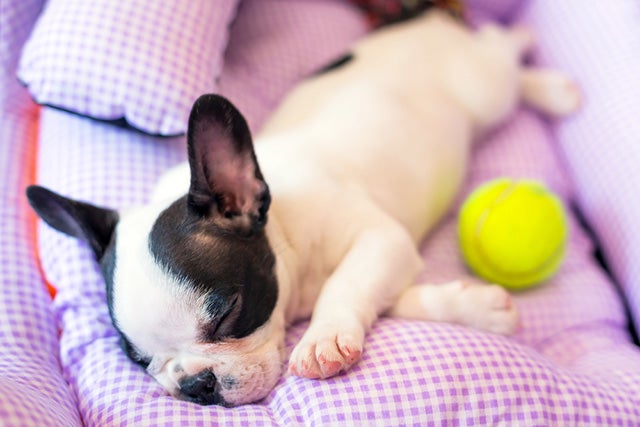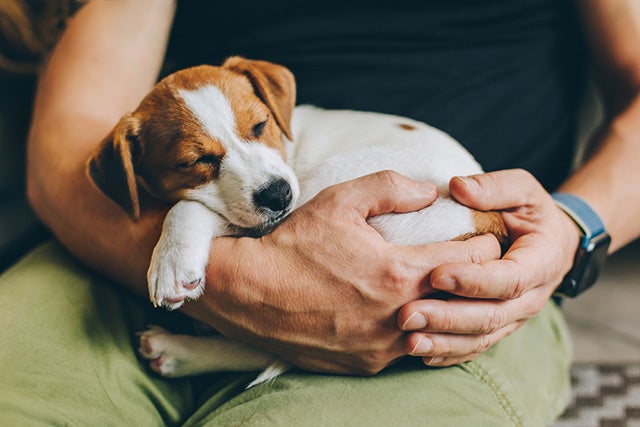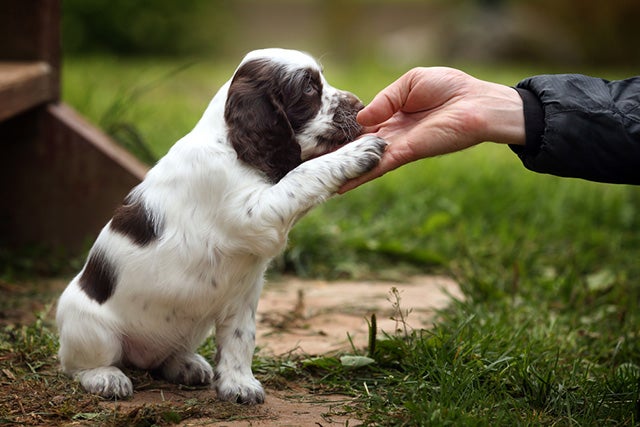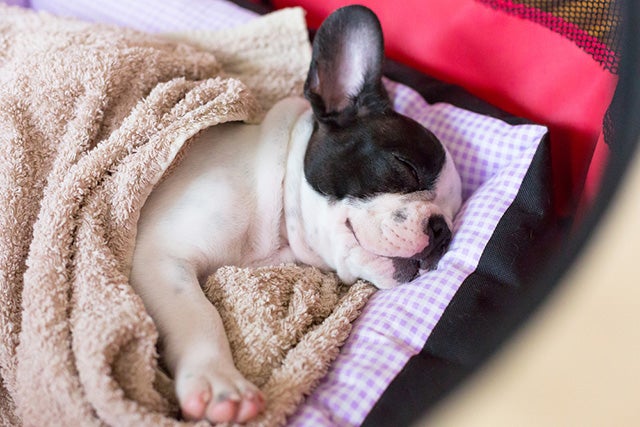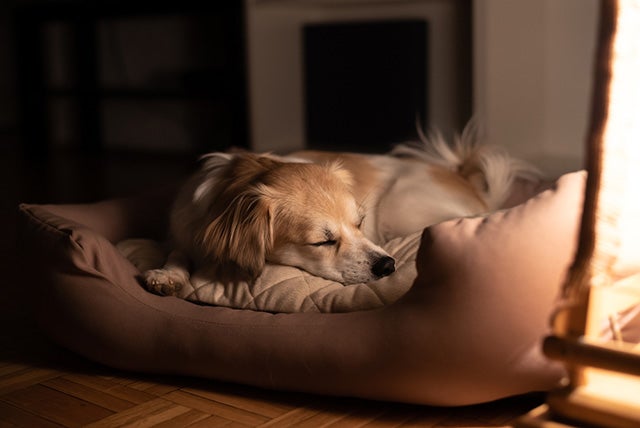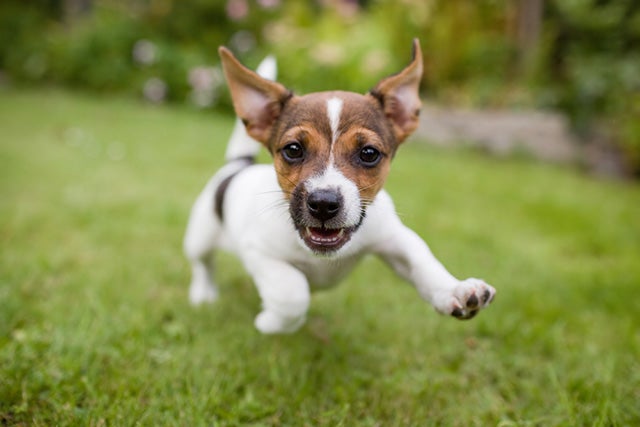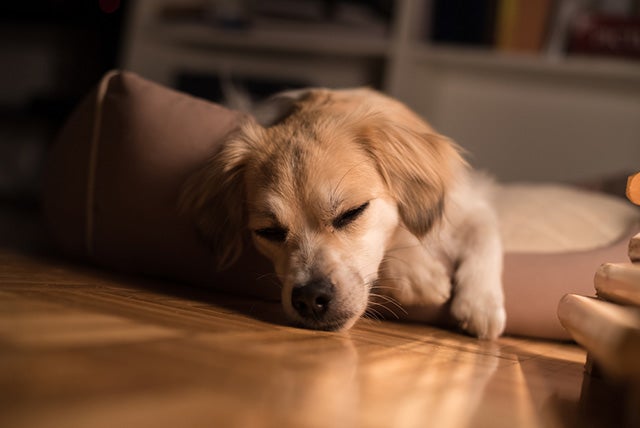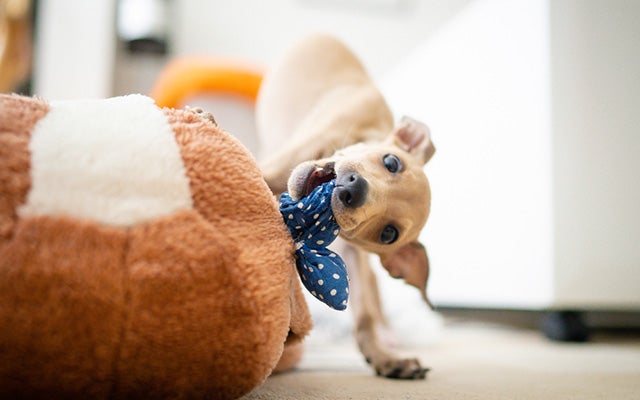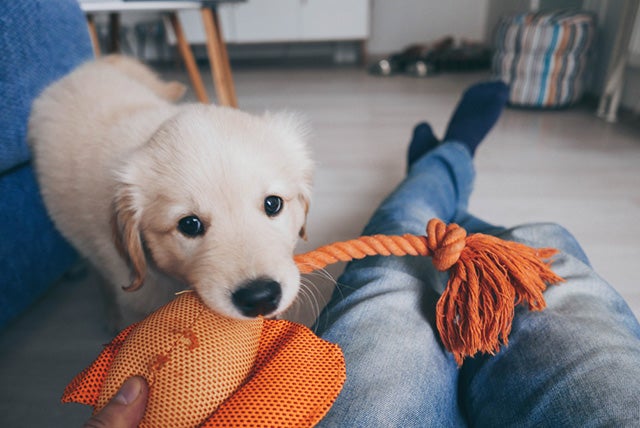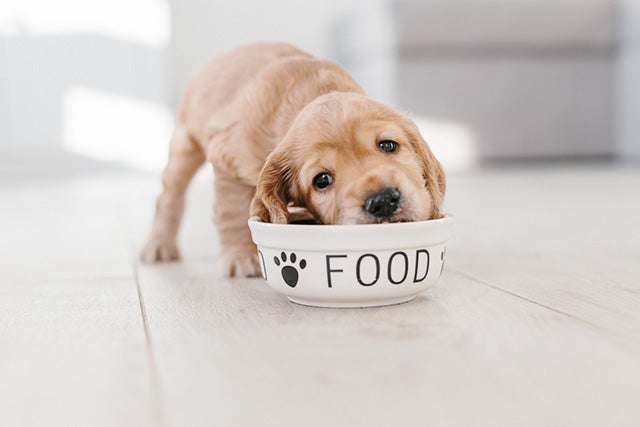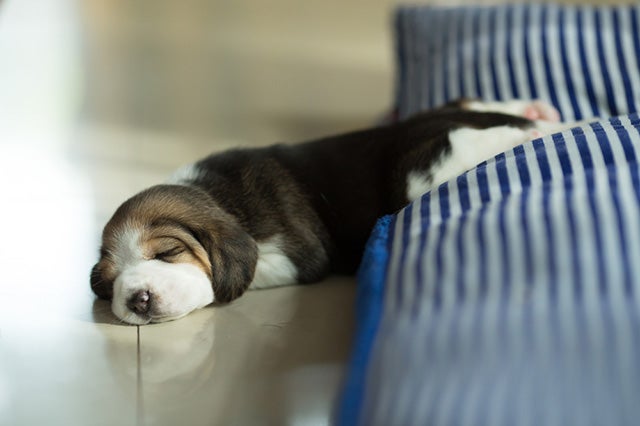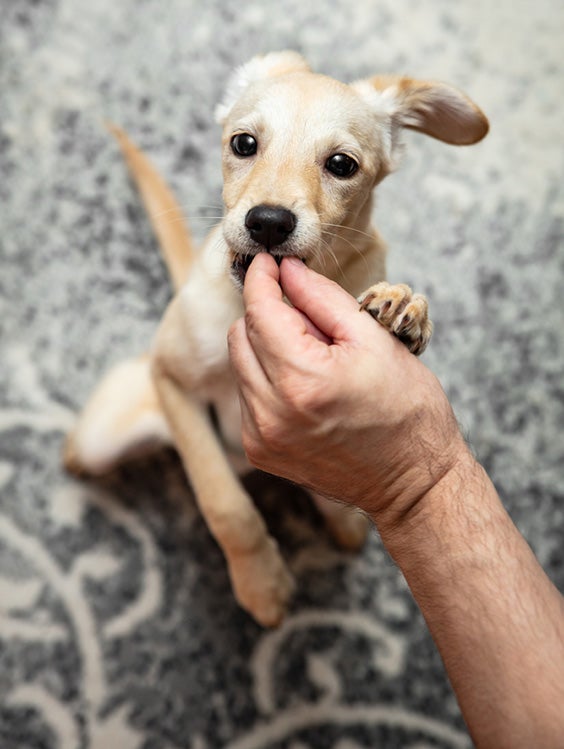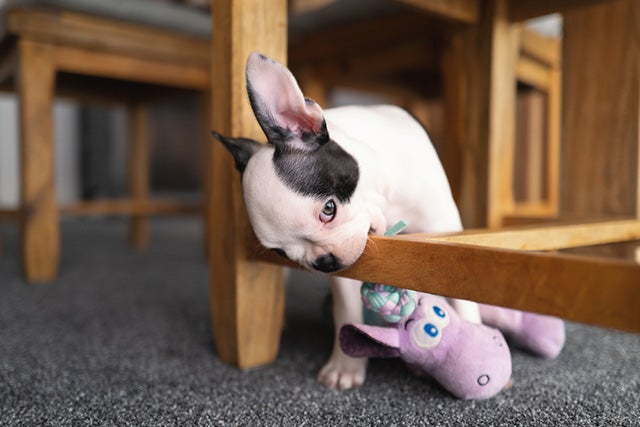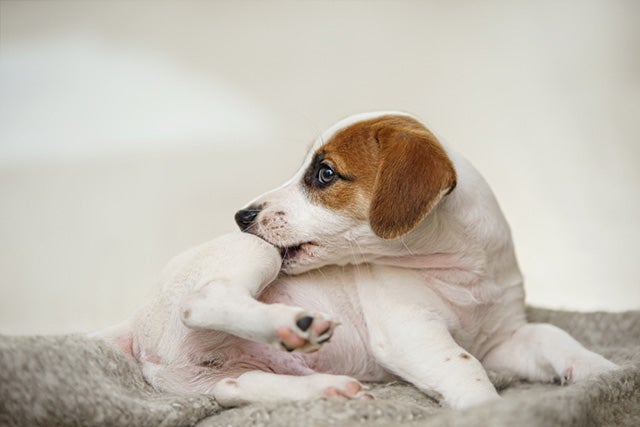Has your family welcomed a new member with four legs and the sweetest eyes? If you’re fortunate enough to own a puppy, you know the responsibility that lies ahead.
Puppies require teaching and adapting just like babies. One of the many things you have to learn is how to get your puppy to sleep through the night. Allow us to be of some assistance.
Do Puppies Sleep Through the Night?
Sleep is critical for canine development, and as anybody who has had a new puppy can attest, it can be difficult to establish a regular resting habit at first. You’ll want to ensure that both you and your new dog are rested and prepared for anything life throws at you.
If you’re concerned that your new tiny family member is napping away the day, don’t despair. It is totally normal and acceptable for your puppy to sleep the entire day, even up to 18 to 20 hours.
Their tiny bodies are rapidly growing, and they require rest, particularly given how lively they may be when awake. Consider a puppy to be a human infant that is rapidly growing and maturing. Sleep is critical for their health and well-being.
Why Are Puppies Sleepy?
Sleep is critical for both dogs and humans. Without the right amount of rest, it’s exceedingly difficult to perform at our best. Every day, your puppy is growing and learning. Proper sleep helps them to recharge their batteries in preparation to do it all over again the following day.
Sleep is vital for the retention of information and the formation of memories. If you teach your dog after it has rested completely, it will learn faster, and you will create a stronger relationship. It is difficult to organize every moment around your dog.
Having said that, both time spent with and away from you is critical for healthy development. It’s not always easy to understand how to live a balanced life as a pet owner. It becomes easier as you continuously learn what it takes to raise a dog. The sooner you learn your pet is unique, the better.
List of Steps and Tips to Get Your Puppy to Sleep Through the Night
When puppies are awake, they use a lot of energy growing physically, meeting new people, exploring new locations, and discovering what they can and cannot accomplish.
Because they are surrounded by an engaging environment, they will frequently disregard an internal clock signaling it is time to rest. You may assist by adhering to a few straightforward principles for daytime naps and overnight bedtimes.
Create an Inviting Sleeping Space
Avoid purchasing an expensive dog bed for a new puppy, as he is prone to chew it up. Line the crate’s bottom with one or two soft, felted, cheap blankets. Avoid blankets or mats made from wool as they can be chewed apart into long, strangling strings.
Instead, give them a toy or a blanket that smells like their mother. Many owners place the puppy’s kennel in their bedroom to give him a sense of familial proximity.
Reward Good Bedtime Behaviour
To begin, ensure that your puppy has had a chance to relieve itself and has had adequate physical and mental exercise throughout the day. Reward him with a goodie for entering his crate. Prepare for some barking, whining, or howling while he adjusts to the pattern.
Set Up a Sleeping Routine
By establishing a pattern early on, you’ll teach him that nighttime is for resting, and both of you will benefit from a restful night’s sleep. Don’t allow the pup to eat or drink water a few hours before bedtime. Cuddle your dog, play with him, and make sure you take him outside for a potty time.
Prepare the Sleep Area
Reduce the volume and dim the light if you enjoy watching TV in bed. If the room receives early morning light, you may even wish to install blackout blinds. The silence and darkness will signal to him that it is time to sleep. If he sleeps in a wire crate, you can cover it to create a darker, more den-like environment.
Get Him Tired
If your puppy has been exhausted during the day, they are much more likely to sleep through the night. Even if your puppy is not yet fully vaccinated and thus cannot go on walks, it is critical to provide him with mental and physical stimulation. This is mandatory whether you have a yard or you have to exercise with your dog indoors.
Play with toys, chase one another, and practice training activities. Outside, you can begin acclimating your puppy to walking on a leash by taking laps around the yard.
Give Them Toys
Pups love chewing. And they actually find it quite soothing! This is especially true when your puppy is teething. At bedtime, some people offer their dogs an edible treat as well.
Choose a toy without squeakers. Keeping a dog toy or bone in the kennel will also keep your puppy calm if they awaken before you.
You might want to check: What You Should Know About Sleeping with Your Pets
Common Sleeping Routines for Puppies
Routine and structure are beneficial to puppies. Along with a feeding and housebreaking program, establishing a sleep plan will assist you and your puppy in adjusting to cohabitation.
This sample schedule should assist you in developing a healthy routine for your canine companion.
In the morning, be prepared to do the following:
- When the puppy awakens in the morning, promptly take him outside to relieve himself.
- Provide him with breakfast.
- Puppies typically require urination after eating, so give him another pee break.
- Spend 30 to 60 minutes playing with him, interacting with others, and going on a stroll.
- Time for a nap. He may sleep anywhere between 30 minutes and two hours.
- As soon as he awakens, give him another toilet break.
- Provide him with lunch.
In the afternoon:
- Allow him a potty break following lunch.
- Allow him to explore for up to an hour while you play with him.
- It’s nap time once more.
- When he awakens, take him outside for a bathroom break.
- And then it’s back to playtime.
- After he plays, chances are he’ll settle in for a nap.
- Toilet break.
Come evening:
- Before you sit down, feed your pup dinner or give him a plush toy to chew on in his crate while you eat.
- Take a walk after dinner.
- Allow him to engage and play with family members.
- Allow him a little bathroom break before placing him into his box for nocturnal slumber.
My Dog Fusses a Lot During the Night
Teething puppies may experience discomfort as a result of their teeth. Offer your puppy some treats or toys to chew on if he or she is teething. Another common technique for soothing sore gums is ice cubes or frozen snacks.
If they are having difficulty settling down and are continuously squirming or scratching, look for fleas or ticks on them or their bedding. Even if you can’t find any insects, thoroughly clean their box and bedding to ensure there are no uninvited visitors.
Another possibility is that your puppy is simply exhausted. You know how exhausted toddlers become grumpy and throw tantrums before collapsing into a deep sleep.
Your pup is also prone to this. This is generally the case following a particularly eventful day filled with novel or interesting developments. Keep your cool and ignore them until they calm down.
You will be the only one who truly understands your puppy and its regular actions. Consult your veterinarian if they are suddenly fussy at night, you’ve tried various treatments, and things still don’t seem right.
While your puppy may simply be going through a difficult phase, it never hurts to seek assistance if you are concerned.
You might want to read: How Much Sleep Do Dogs Need?
Wrap Up
Hopefully, these tips and bits of information have taught you how to get your puppy to sleep through the night. Remember that puppies can throw tantrums just like kids when it comes to bedtime. The key is to be disciplined and not give in to their whining when you’re training them how to sleep at night. And for when your pup is big enough, check out our best dog beds!
Photo credit: Ivanova N/Shutterstock; Inna Skaldutska/Shutterstock;
Patryk Kosmider/Shutterstock; Iryna Imago/Shutterstock;
Bastiaan Schuit/Shutterstock; Daniel Besic/Shutterstock;
kasakphoto/Shutterstock; belefront/Shutterstock;
Switlana Sonyashna/Shutterstock; Christine Bird/Shutterstock;
Yuliya Evstratenko/Shutterstock; Beatriz Vera/Shutterstock
